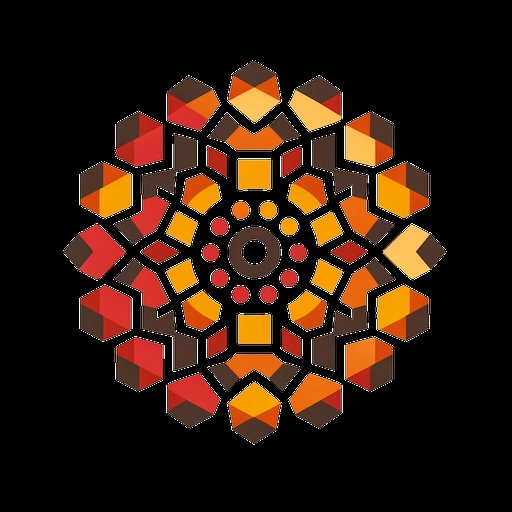Multicellular Mankind
Multicellular Mankind is the notion that individual human beings are like cells in the human body. Each acts locally with little or no conception of the whole. The whole itself is a being, viewed at various levels of organization: family, nation, religion, or ethnicity.
Roshan George @arjie Sure, in the same sense that eating sweet stuff feels good. Humanity as an organism does better when some fraction of it explores and trades off the replication-focus for search-focus.
With mean regression in IQ, one could imagine that replication focus for us mean-IQ individuals is a tool to increase the chance of subsequent high IQ individuals in the future who will explore.
In a sense, those of us replication-focused are just aiming to ultimately produce Newtons, Cavendishes, and (ironically) Mendels.
But you have to zoom out and view individuals like cells in a body.
Oct 16, 2024[1]
Most of us know of the fundamental units of biology all the way downwards. Our starting point is an organism as we know it (say a man) and then we zoom into the organism to look at the pieces of it that together create its behaviour. As an example, let's take a man:
- Human
- Organ Systems (e.g., digestive system, nervous system)
- Organs (e.g., heart, brain)
- Tissues
- Cells
- Organelles (cellular components)
- Macromolecules (proteins, DNA, RNA, ...)
We can keep going but even by the time we go down from macromolecules, we're entering Chemistry. So sticking with the first few there, we see emergent behaviour coming from simple functional units that have relatively simple behaviour.
There are good reasons for us to consider the top-level unit an organism as we know it, perhaps foremost of all is that it is equivalent to an individual human. At the broadest level of categorization, it's just what has an inside and an outside. And perhaps it is normal in most publicly expressed schools of thought that this is the unit of being.
But there is also a bigger unit of being. Individuals experience glimpses of this when they're cheering on a sports team or taking part in a mob. And they also experience this when they've got a family. Few fathers would not put themselves at risk for their children. But even this is a local phenomenon.
As human beings, we have limited chemical communication skills, relying primarily on verbal and textual communication. And this is where our original conception of human person as individual being alone comes from. Identity is primarily synchronization-ability.
As our communication speed improves, our units of multi-human organization become like beings themselves. Individuals behave like cells: provided simplistic input, they produce output, in response to some reward function. Individual soldiers obey orders to move to borders similar to T-cells moving to a breach in skin.
So humanity is self-similar up to larger scales. It would be meaningless to us to ask how an arbitrary cell feels when we want to touch someone else and move our finger to do so. Perhaps it is just as meaningless to ask how a human feels when the Earth-being comprised of individual humans acting as they do wishes to touch its satellite.
Jiankui He @Jiankui_He I will apologize for the gene edited baby experiment, only if their parents have requested it. However, they are happy with the results now.
Oct 22, 2024[2]
Is a moon-landing an action of the Earth-being? Is AI research the action of the Earth-being's adaptation to its environment through intelligence-construction. Certainly if we had the kind of control over our construct-substrate we would do the same. We are trying, but the results are clumsy so far.
Colony Organisms
Humans themselves are colony organisms. Many have argued that mitochondria are living beings and I agree. But not them specifically. I don't think the replication pattern alone makes them special. A lot of what we do today relates to ensuring the entire ecosystem of man arises in an environment it wasn't originally adapted to. Your gut bacteria colonize you from your mother through delivery (the old joke about who puts fun near the sewer system may be adaptive), demodex folliculorum colonizes you through cuddling, oral microbiome happens all the time but also through breast milk.
It's not that something is "out of balance" in a supernatural sense. It's just that over time an adaptive multi-species machine was built that carries, like a replicating colony-ship, a bunch of life forms through time. And this machine tuned itself accidentally through the process of evolution to a certain environment. Transforming the machine through synthetic 'hygiene' isn't necessarily improving something. Some times that's just the same as removing all the toilets in your house since they have the highest probability of housing poop.
Consequences
So what's the consequence of being Multicellular Mankind?
- One's purpose is simply to fulfill one's purpose to the Panhuman Organism: just do as you believe you should
- Multigenerational Optimization is preferable
- Transmission and recombination of one's memogenetic basis is inherently necessary
- Rejuvenation through the birth-maintenance-death cycle is necessary
- Survival of the individual is only necessary where Panhumanity needs it
References
- ↑ Roshan George [@arjie] (Oct 16, 2024). "Sure, in the same sense that eating sweet stuff fe..." (Tweet) – via Twitter.
- ↑ Jiankui He [@Jiankui_He] (Oct 22, 2024). "I will apologize for the gene edited baby experime..." (Tweet) – via Twitter.
